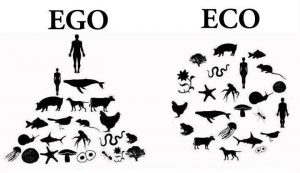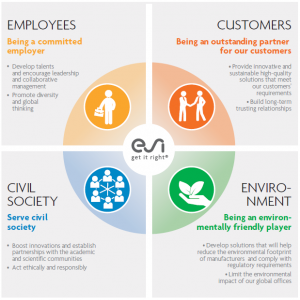
In today’s consumer culture, we have witnessed a shift where consumers no longer only consider their goods and services when choosing a brand; they are beginning to prioritize the ideologies of Corporate Social Responsibility (CSR). This means that consumers have begun holding companies accountable for their ability to adapt to social (and environmental) change by reforming their business beliefs, practices and profits to fit societal ethics (3).
Statistically speaking, a study by Cone Communications in 2017, “Found that more than 60% of Americans hope businesses will drive social and environmental change in the absence of Government Regulation,”, 87% would purchase a product because a company supported something they cared about and 76% said they would refuse to buy products from companies that support issues contrary to their beliefs (1,3). CSR has even bled into the Labor Markets, influencing where today’s top talents choose to work because realistically the only constant is change. Some businesses heavily committed to CSR use it as a creative opportunity to fundamentally strengthen their businesses while contributing to society at the same time, though sometimes the execution (balance) or the ethics behind it are skewed. Starbucks along with many other companies have made a serious effort towards bettering their CSR; for an additional list of companies check out; https://www.smartrecruiters.com/blog/top-20-corporate-social-responsibility-initiatives-for-2017/

The other side of CSR is the sad reality of money making because some companies see the push of CSR as a fad or source of outside pressure and change their company simply to make money in the changing world of consumerism. Some companies claim to be environmentally and ethically responsible, but actually, contain disinformation disseminated by an organization so as to present an environmentally responsible public image; this is considered to be the idea of Greenwashing (2). Here is an article talking a little bit about some of the larger corporations accused of Greenwashing: https://www.truthinadvertising.org/six-companies-accused-greenwashing/
However, Businesses have increasingly begun to perceive sustainability as an opportunity because as s sustainability moves up on the boardroom agenda, we can expect the increased integration of sustainability functions into all facets of the business and away from ‘CSR’. Multinationals rewired for sustainability Companies such as GE, Unilever, Nike, IKEA, Toyota and Natura are already reaping the benefits of offering ‘green’ products and services – a market which has grown to over $100 billion.
The idea of CSR ties in closely with Ecocritical Literature such as Aldo Leopold’s Land Ethic and Rob Nixon’s Slow Violence and the Environmentalism of the Poor. For example, Nixon argues that the imperialism of developed countries leads to an awareness gap where “it is a pervasive condition of empires that they affect great swathes of the planet without the empire’s populace being aware of that impact”. This addresses the extent to which empires use and abuse Nature and “disposable peoples” of non-first world countries. Yet to be duly noted, developing countries are in a position where they do not have the ability or pleasure to view nature simply as an awe to be looked at. They must use the land to live off of, but not in the same sense as developed empires ‘use’ land (such as Big Oil and Big Tobacco).
This brings me to Aldo Leopold’s work in regards to the value we place on land and Nature. Being apart of a developed society, we are inclined to only see value in “a system of conservation based solely on economic self-interest [which] is hopelessly lopsided,” rather than culturally, ethic based or communally. Rachel Carson in her academic crossover touches more abstractly on the idea of land value and ethics. Where we are only capable of understanding the long-term effects of our disinterest in the environment if the consequences are laid out in front of us. These artists work to show us, through literature, what needs to happen in order to alter humanities perspective of their relationship and value of the land they use and too often abuse.
-Makenna M. Christensen
- https://www.investopedia.com/terms/c/corp-social-responsibility.asp
- https://www.investopedia.com/terms/g/greenwashing.asp
- https://www.mckinsey.com/featured-insights/leadership/making-the-most-of-corporate-social-responsibility